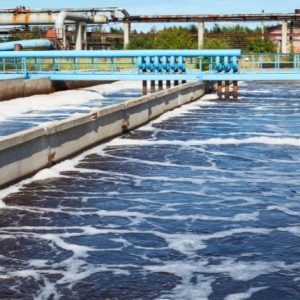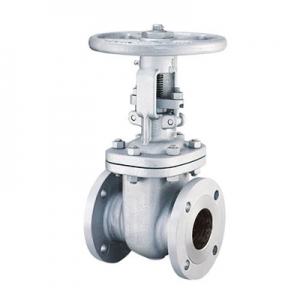Water is no longer just a utility—it's a strategic asset. As industries scale up production, expand footprints, and explore new geographies, managing water use and discharge has become a critical operational priority. From heavy manufacturing to microelectronics, businesses are under pressure to comply with tightening environmental regulations, reduce water-related costs, and protect long-term access to clean water. This is where the industrial wastewater treatment market steps into the spotlight.
This market is growing rapidly as industries recognize the dual need to manage environmental impact and optimize internal resource cycles. Whether it’s treating toxic discharge from dye houses or removing micro-contaminants from pharmaceutical waste, industrial wastewater solutions are no longer optional—they’re essential.
Insights That Matter: Expert Market Research on Market Dynamics
According to Expert Market Research, the industrial wastewater treatment market size is experiencing strong growth, fueled by regulatory shifts, rising freshwater scarcity, and increasing investment in clean tech infrastructure. Their in-depth studies point to a steady rise in demand for advanced technologies such as membrane bioreactors, dissolved air flotation, and zero liquid discharge systems. EMR’s insights cover treatment solutions by industry, technology, and geography—providing a valuable lens for businesses seeking clarity in a fast-moving landscape.
Their research indicates that companies are not just investing in treatment for compliance—they're leveraging wastewater systems to recover valuable materials, improve efficiency, and reduce operational risk. EMR’s forecasts offer businesses a clear path to plan, adapt, and lead in an increasingly sustainability-focused market.
What's Powering the Growth of the Industrial Wastewater Treatment Market?
Across industries, one thing is clear: governments are not waiting around. Environmental agencies worldwide are tightening discharge standards, introducing real-time compliance checks, and penalizing violations with hefty fines. In this context, having outdated or underperforming wastewater systems is no longer a risk—it’s a liability.
Industries are also realizing the long-term cost of sourcing and disposing of water. With freshwater becoming increasingly scarce and expensive, the ability to recycle and reuse wastewater is not just good practice—it’s smart business. Reusing treated water for boiler feed, cooling systems, or irrigation can significantly cut operating costs and improve water security.
At the same time, sustainability has moved from boardroom buzzword to operational benchmark. Stakeholders, investors, and consumers now expect companies to demonstrate environmental responsibility. Wastewater treatment systems are central to that narrative, helping companies hit ESG goals and reinforce their reputational credibility.
Technological Evolution Driving Market Innovation
Technology is unlocking possibilities in wastewater treatment that were unthinkable even a decade ago. Biological treatments, particularly aerobic and anaerobic processes, are becoming more sophisticated and efficient. In industries where the effluent contains complex or non-biodegradable chemicals, chemical and membrane technologies are stepping in to close the gap.
Membrane bioreactors (MBRs) have become a go-to solution for industries requiring compact systems with high-efficiency output. Nanofiltration and reverse osmosis units are finding demand in sectors like semiconductors and petrochemicals, where ultra-pure water is a must. Technologies like electrocoagulation and UV disinfection are also gaining ground, especially for decentralized or modular treatment setups.
Artificial Intelligence (AI), automation, and data analytics are now being integrated to monitor effluent parameters in real time. This not only ensures compliance but allows facilities to optimize chemical dosing, reduce energy consumption, and predict system maintenance before failure occurs.
Regional Momentum: Who's Leading the Charge?
In the United States, industries like oil & gas, food processing, and chemicals are modernizing their systems as environmental policies become stricter and more localized. The demand for decentralized treatment in remote drilling and mining areas has increased, pushing innovation in mobile and modular units.
Asia is becoming a key player, especially with countries like India and China investing heavily in industrial expansion and environmental enforcement. The pollution levels in industrial corridors have pushed governments to crack down on untreated discharge, resulting in public-private investment in new treatment plants and retrofits of existing ones.
Europe continues to lead from a policy and innovation standpoint. Circular economy initiatives are now embedded into wastewater management strategies, with many industrial plants recycling up to 80% of their water. Manufacturers in Europe are also setting benchmarks by incorporating recovery systems that reclaim heat, nutrients, or rare metals from wastewater streams.
Middle Eastern industries, particularly in water-scarce countries, are investing in high-end desalination and reuse technologies to ensure water continuity in energy and infrastructure projects. Reuse and recycling are not just cost-saving here—they're a necessity for survival.
A Convergence of Policy, Capital, and Consciousness
Investment in industrial wastewater treatment is no longer limited to infrastructure players. Venture capital, ESG funds, and green bonds are now flowing into the sector, supporting innovation across the board. Governments are incentivizing industries to install systems through subsidies, tax breaks, and inclusion in carbon credit schemes.
In many regions, governments are also enabling shared infrastructure, where industrial parks or zones are equipped with centralized, high-capacity wastewater treatment systems. This allows smaller industries to benefit from advanced treatment without bearing the full cost burden individually.
Private sector leaders such as Veolia, SUEZ, Xylem, and Ecolab are moving beyond hardware. They're now offering subscription-based services, performance-linked contracts, and outcome-focused partnerships that align operational goals with environmental results.
Market Outlook: Rising Demand, Smarter Systems
The industrial wastewater treatment market is poised to grow faster as industries shift from reactive to proactive water strategies. Demand will rise for smart systems that are energy-efficient, digitally connected, and capable of resource recovery.
Wastewater is no longer treated as a liability—it’s becoming a strategic lever. Treated water is now being used in concrete mixing, HVAC systems, cleaning processes, and in some cases, production lines themselves. As the technology becomes more refined, affordable, and accessible, more industries will embrace this shift.
AI-powered systems with IoT sensors will become mainstream, enabling real-time monitoring, compliance alerts, and performance optimization. As these technologies scale, both cost and complexity will decline, opening new opportunities for mid-sized and emerging industrial players to invest.











